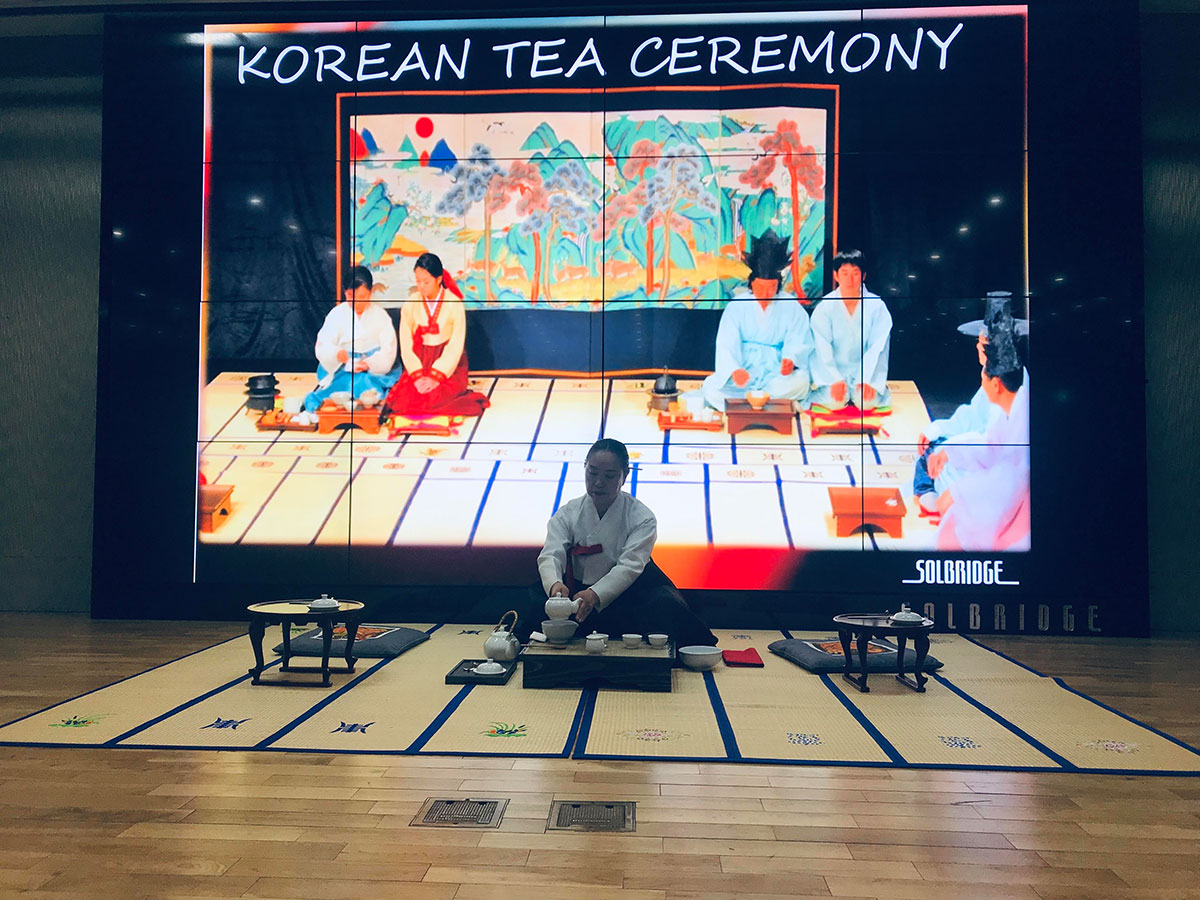Reflections on South Korea 2019
The study module “Overseas Educational and Managerial Experiences” took students of the MSc International Management to South Korea. Over the course of ten intensive days, the students took a deep dive into South Korean business practices and culture.
Camilla Leopoldino, an alumna of the MSc International Management, took also part in the delegation. Here she tells of her experience and why she signed on for the study module even though he has already completed her Master’s degree.
Text by Camilla Leopoldino
South Korea. The only country to ever pass from a beneficiary status to a donor of the Organization for Economic Cooperation and Development (OECD) in just a few decades. To some, this remarkable economic development may seem to be a true miracle.
But how did South Korea achieve such a miraculous development? What makes South Korea special? What are the lessons to learn from the Korean management styles? How prominent does culture figure into daily business life? Those were the questions I was interested in throughout the 10-day programme in South Korea.
From historical facts to negotiation tactics, and current national challenges, the 10-day program in collaboration with Solbridge International School of Business brought together a combination of cultural delights and professional insights to get a better understanding of this Asian country.
As I soon realised, one cannot talk about this country without thinking about its history, and of course, culture. Shaped by a series of events and different cultural exposure from China, Japan to the US, Korean culture is unique in many ways.
A certain flair for practicality seems to be the key characteristic of the Korean history that shows its uniqueness. The creation of the Korean alphabet (the Hangul) in order to facilitate communication and promote literacy and former president Park Chung-hee’s strategy of collaborations with key family-led enterprises (chaebol) to boost the economic growth are just a few examples that bring about the Korean traits.
Of course, one cannot forget the influence of Buddhism and, most importantly, Confucianism, that are deeply embedded in Korean culture as well as in the management style. Based on a paternalist and relational management type, the hierarchy of relationships is important, shaping companies’ relations and contractual synergies until today.
Another important aspect as well is the act of bowing. It is a structured and mindful action of respect that reflects the mindfulness of the cultural behaviour and the influence of Confucianism. In addition, I have found that the delightful experience of the tea ceremony encompasses much of the Korean culture. Just like the Chinese ritual, it is full of delicate movements in a mindful meditation of gestures that culminate in the intake of tea. Korean culture comprises a conscious and gentle essence that cannot be explained in books, but must be experienced on the streets of Seoul and throughout South Korea.
The colour, the fragrance and the beauty of tea making is a mindful process that represents the beauty of Confucianism-based culture (photo: CamillaLeopoldino).
Outside the classrooms, the delegation had the opportunity to visit Korean Ginseng Corporation (KGC), a key market player in ginseng production, AmorePacific, a key national player in cosmetics manufacturing, and Hyundai, the world’s largest automobile plant holder and ship manufacturer. Although from diverse industries, all corporations had one thing in common: the distinctive respect and celebration for their history and their responsibility towards the community. An exceptional example of that is the village of Ulsan, in the south-eastern region, that is basically catered to by one key group: Hyundai. An array of Hyundai’s structural services (schools, hospitals, hotels, etc) take care of the population’s needs.
Normally not mentioned, but equally important, is the distinctive community sense of Koreans. Part of the reason for the unprecedented economic growth is a unique and strong community sense, not only through impressive support of home-market products but also an extensive history of long working hours, prioritising education for the upcoming generation above all else.
Today, it is quite visible that South Korea’s millennials and next generations are slowly drifting away from that reality as a natural effect of globalisation. As a country that shows 99% of homogeneity, South Korea has managed to maintain its uniqueness despite its historical precedents.
As a result of the rapid growth, the overwhelming challenge that Koreans face is quite similar to many other developed countries – an aging population. For decades, the population has been focused on building up the country. Now, due to the crushing living costs and social pressure for educational success, the situation is not favourable for starting a family. It is the question of the century, and South Korea will need to address it with great priority.
When the programme finished, it left me hungry for more. Much like a crash course on a certain skill, the delegation came home with a, “handbook” on Korean culture and business that cannot be found in bookstores. It can only be experienced.
People asked me what I can get from attending a study module when I have already completed the Master’s programme. Well, there is nothing more rewarding than travelling the world and collecting “handbooks of knowledge” that cannot be found in any bookstore.

